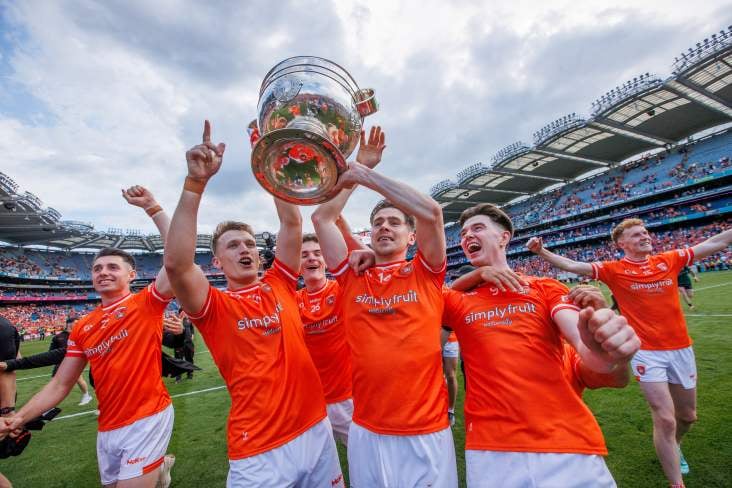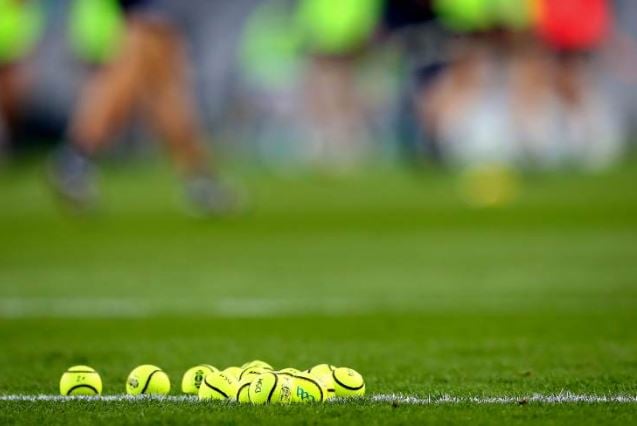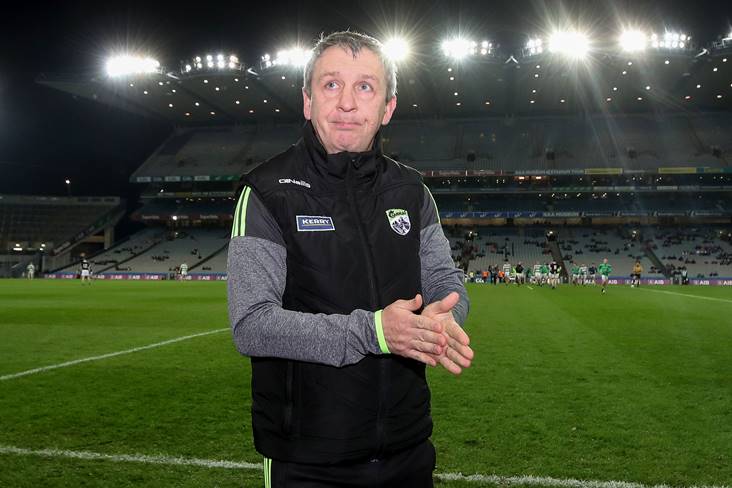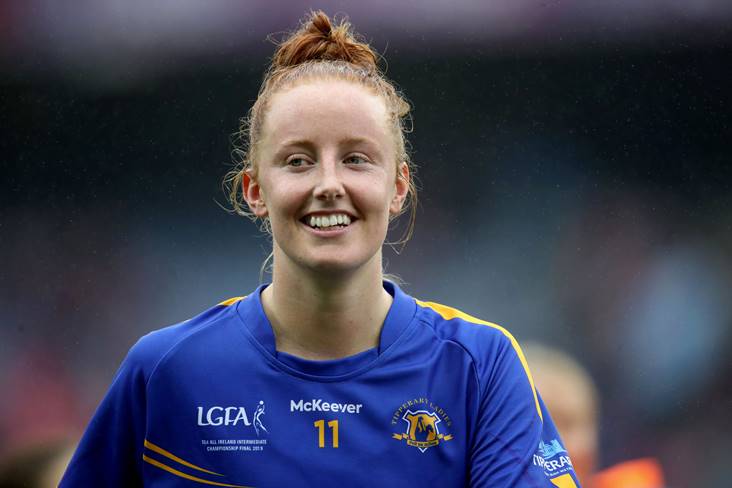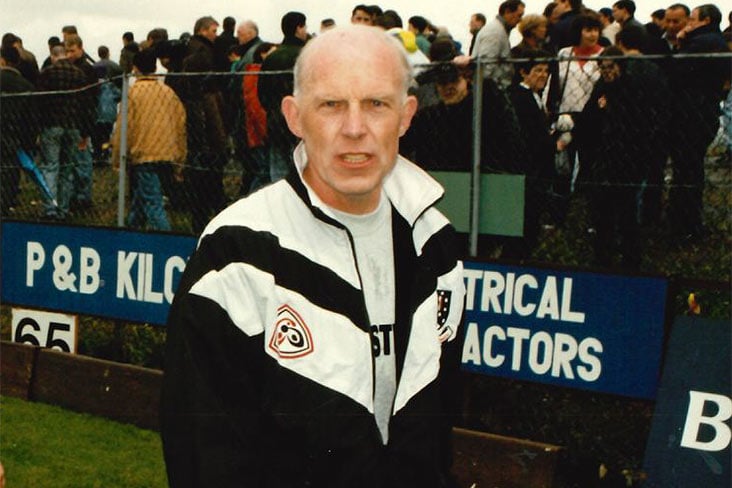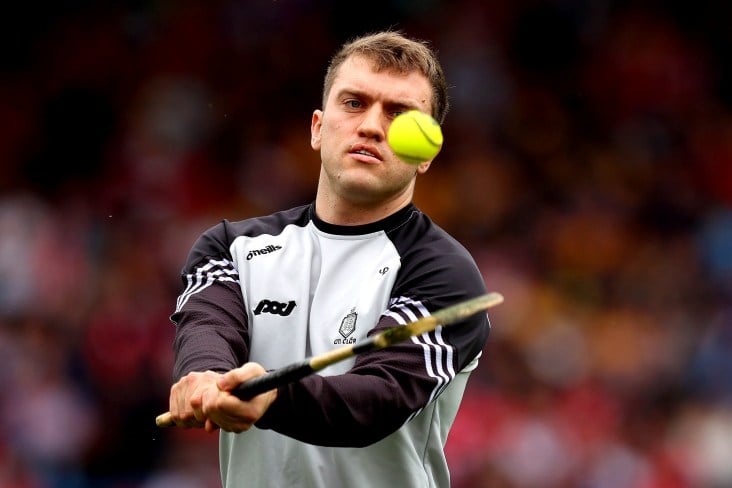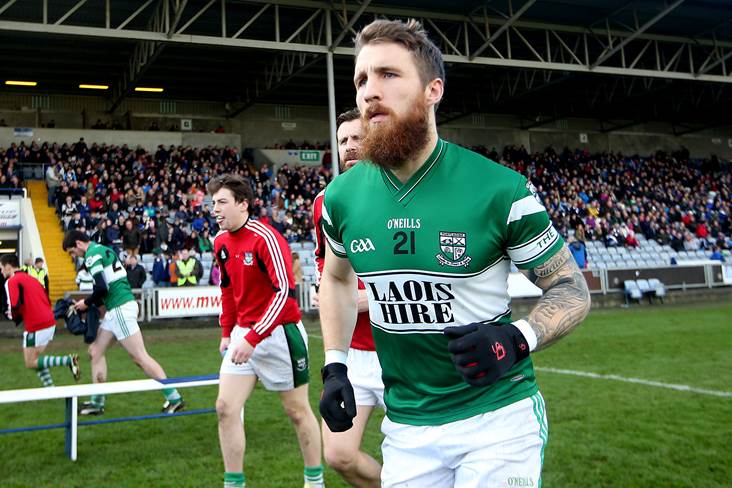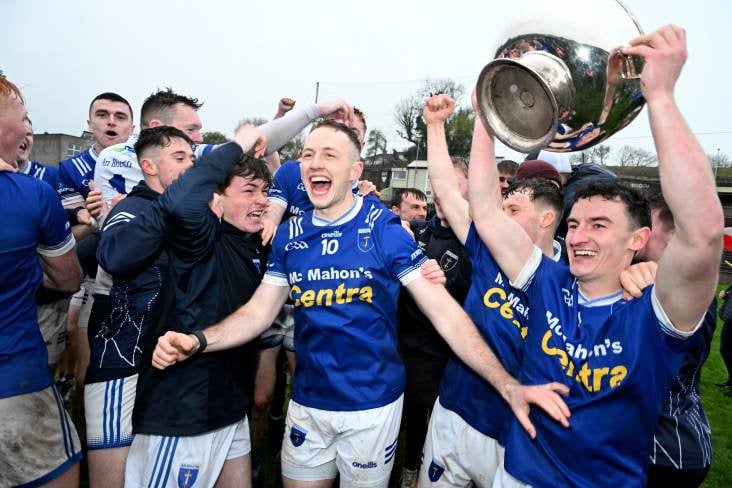Camogie Association launch Strategy 2024-2027
March 29, 2024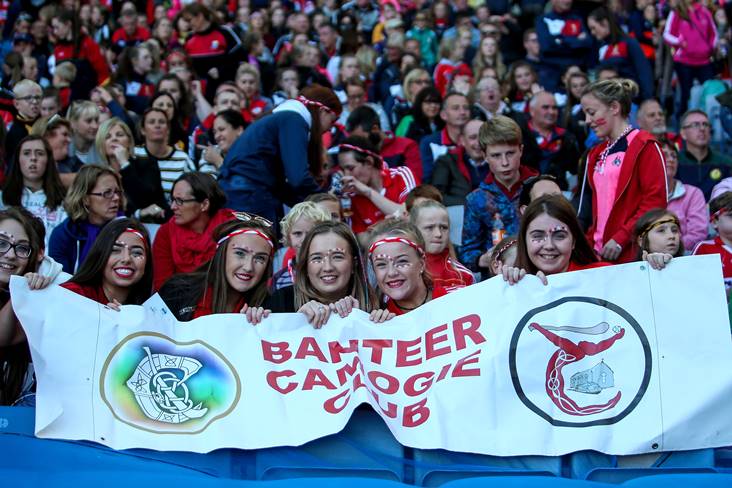
Cork fans from the Banteer Camogie Club at the All-Ireland Camogie finals at Croke Park. ©INPHO/Laszlo Geczo.
The Camogie Association has launched their Strategic Plan 2024-2027 – Our Game, Our Passion. This strategic plan, prepared by the Association in conjunction with Leading Sport, sets out ambitious targets for the next three years. The plan has been informed by the results of the in-depth “Research Baseline for Camogie” study, conducted by the Sport Industry Research Centre at Sheffield Hallam University.
From 2024 to 2026, The Camogie Association key target areas include:
- Raising attendances at camogie fixtures by 20% by 2026, culminating in an All-Ireland final attendance of 50,000 by 2026
- Growing membership & Club numbers by 10% over the next three years
- Building capacity for coach, referees and volunteers through education and development programmes.
- The baseline research study provides detailed insights into the current status of camogie and identifies priorities, challenges and opportunities for Camogie. Some key findings from the study include:
Positive Club Experience:
The vast majority of respondents reported a positive experience, with friendliness (88%) and location (88%) rated particularly highly. Eight in ten (80%) members feel their club is well organised while seven in ten (77%) are satisfied with their club’s use of social media.
Eight in ten (83%) feel their club is committed to the values and ethos of the sport. The report highlights a high proportion of complaints to children officers relating to a lack of playing time at underage level, warning that there is no room for complacency in responding to this challenge.
Membership Influences:
Four in ten (40%) respondents said they have been a member of their club for 10 years, with half of respondents first trying Gaelic Games at a club, one in three (8%) through primary school, and less than one in 10 (7%) at secondary level. Personal relationships were found to be a key influence in joining a club with almost five in ten (48%) people saying their parents had influenced them to join, while three in ten (39%) parents said that their children had been the motivating factor.
Volunteers:
The study suggests there is considerable scope to recruit more volunteers from the ranks of current players, expanding the current volunteer base which depends in large part upon older men and women who give their time to support the participation of young women and girls.
Barriers:
Barriers which prevent individuals from volunteering include the demands of work (82%) and demands of family (75%). Four in ten (46%) say their participation in other sports and activities is a barrier.
Integration:
Positive anticipation of integration, which respondents expected to resolve fixture conflicts and elevate the sport's profile.
Celebration:
The importance of celebrating the 120th Anniversary of the Camogie Association in 2024.
Launching the plan on behalf of the Camogie Association, Uachtarán Hilda Breslin, highlighted the importance of listening to the feedback from members when setting the priorities, targets and ambitions for the Association for the next three years. She said:
“While we work to define what the future of Gaelic Games looks like, it is imperative that we focus on the development of our sport to secure Camogie’s future, cement our place as a leading female field sport and celebrate Camogie’s unique place in Irish culture, heritage and history.”
Research Fellow, David Barrett from the Sport Industry Research Centre at Sheffield Hallam University in the UK, said “The patterns and trends identified in this report should reassure clubs, their members and players, that Camogie has a sustainable long-term future if the challenges facing the sport can be met and overcome.”
Tweet